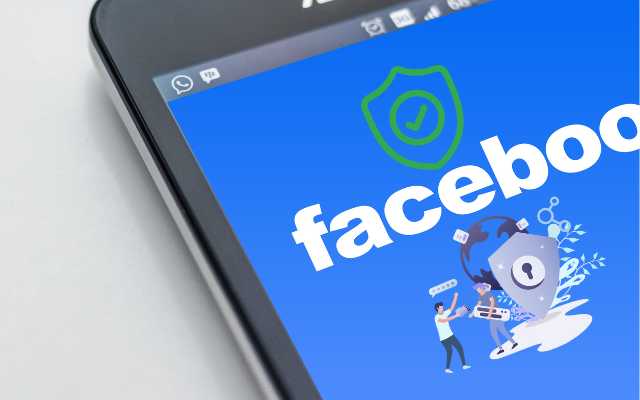How to Secure A Facebook Account in 2023

How to Secure A Facebook Account in 2023: As social media continues to grow in popularity, so do the threats to your privacy and security. Hackers and scammers are always on the lookout for new ways to steal your personal information or take control of your social media accounts. Facebook is no exception. Therefore, it’s essential to secure your Facebook account and protect your personal information. In this article, we’ll outline some tips and best practices to secure a Facebook account in 2023.
How to Secure A Facebook Account in 2023
- Enable Two-Factor Authentication (2FA) Two-factor authentication is a security feature that adds an extra layer of protection to your Facebook account. It requires you to enter a unique code sent to your phone or email before logging into your account. Enabling 2FA can prevent unauthorized access to your account, even if someone has your password. To enable 2FA, go to your Facebook settings, select “Security and Login,” and then click on “Two-Factor Authentication.”
- Use a Strong and Unique Password A strong password is one of the most crucial elements in securing your Facebook account. It should be at least 12 characters long, include a mix of upper and lowercase letters, numbers, and symbols. Avoid using personal information, such as your name or date of birth, as part of your password. Additionally, do not reuse the same password for multiple accounts. You can use a password manager to generate and store strong passwords.
- Be Careful What You Click Phishing scams are prevalent on social media, and Facebook is no exception. Scammers use phishing techniques to trick you into giving away your login credentials or personal information. Be wary of clicking on links or downloading attachments from unknown or suspicious sources. Check the URL of any link before clicking on it to ensure that it leads to a legitimate website.
- Review Your Privacy Settings Facebook allows you to control who can see your posts, photos, and other personal information. Review your privacy settings and make sure that you are comfortable with the level of access that you have granted to others. Also, make sure that your personal information, such as your phone number and email address, are visible only to the people you trust.
- Keep Your Software Up-to-Date Keeping your software up-to-date is crucial to maintaining the security of your Facebook account. Facebook regularly releases security updates to its app and website to fix vulnerabilities and address security issues. Make sure that you have enabled automatic updates on your device to receive the latest security patches.
FAQs:
Q. How do I know if someone has hacked my Facebook account?
A. If you suspect that someone has hacked your Facebook account, there are several signs to look out for, including:
- Unusual activity on your account, such as posts, messages, or friend requests that you did not make
- Changes to your account settings, such as your password or security questions
- Notification emails from Facebook about actions that you did not take
- Difficulty logging into your account, or your account is blocked
If you notice any of these signs, it’s important to take action immediately. Change your password, review your recent activity, and report any suspicious activity to Facebook.
Q. Can I use a VPN to secure my Facebook account?
A. Yes, using a Virtual Private Network (VPN) can add an extra layer of security to your Facebook account. It encrypts your internet connection and hides your IP address, making it difficult for hackers to intercept your online activities. However, it’s important to choose a reputable VPN provider and follow their security best practices.
Q. What should I do if I suspect that my Facebook account has been compromised?
A. If you suspect that your Facebook account has been compromised, there are several steps that you can take to regain control and protect your information:
- Change your password immediately: Choose a strong and unique password that you haven’t used before.
- Log out of all sessions: Go to your Facebook settings and click on “Security and Login.” Then, select “Where You’re Logged In” and log out of all sessions.
- Remove suspicious apps: Go to your Facebook settings and click on “Apps and Websites.” Review the apps and websites that have access to your account, and remove any that you don’t recognize or trust.
- Check your recent activity: Review your recent activity on Facebook and look for any posts, messages, or friend requests that you didn’t make.
- Report the issue to Facebook: If you’re still having issues, report the problem to Facebook’s Help Center.
Q. How can I protect my Facebook account from malware and viruses?
A. To protect your Facebook account from malware and viruses, follow these tips:
- Use antivirus software: Install antivirus software on your device and keep it up-to-date to protect against malware and viruses.
- Be cautious of links and downloads: Don’t click on suspicious links or download attachments from unknown sources.
- Update your software: Keep your device’s software up-to-date to fix vulnerabilities and address security issues.
- Don’t share personal information: Avoid sharing personal information, such as your phone number or email address, with unknown sources.
- Review app permissions: Review the permissions that you grant to apps and websites that you use with Facebook.
- How Sys01 Stealer gets your sensitive Facebook information
- How to Hide Your Birthday on Facebook
- How to Download Facebook Videos: A Step-by-Step Guide
Conclusion
Securing your Facebook account is crucial to protect your personal information and online identity. By following the tips and best practices outlined in this article, you can reduce the risk of your Facebook account being compromised by hackers and scammers. Stay vigilant and stay safe online.





